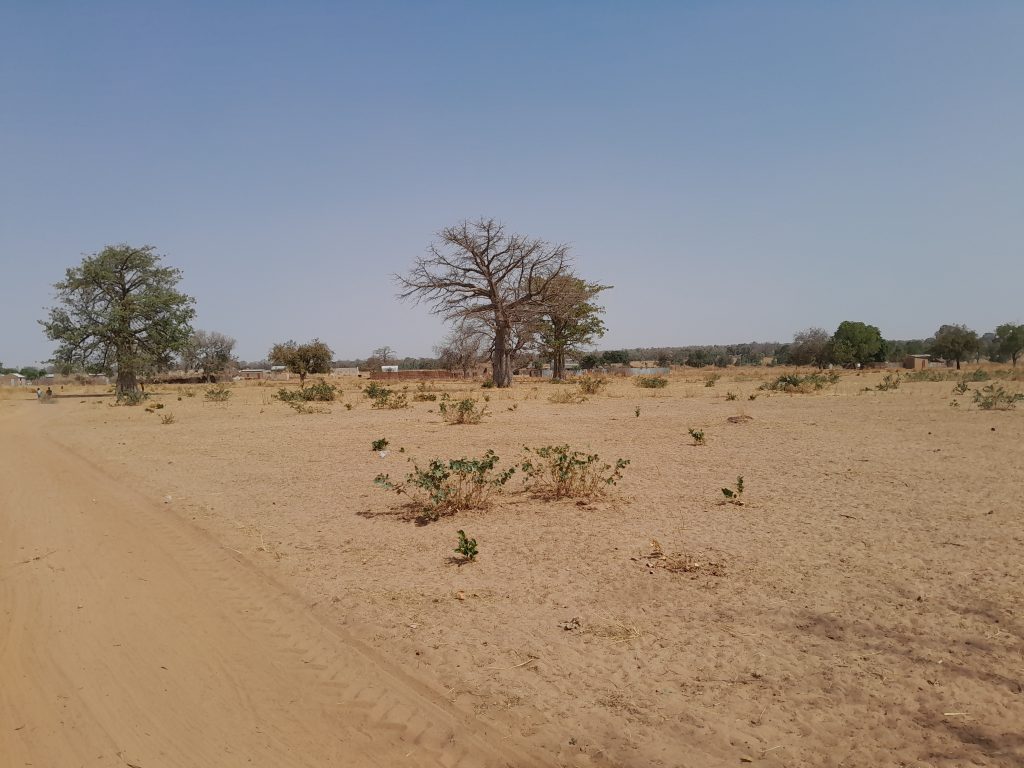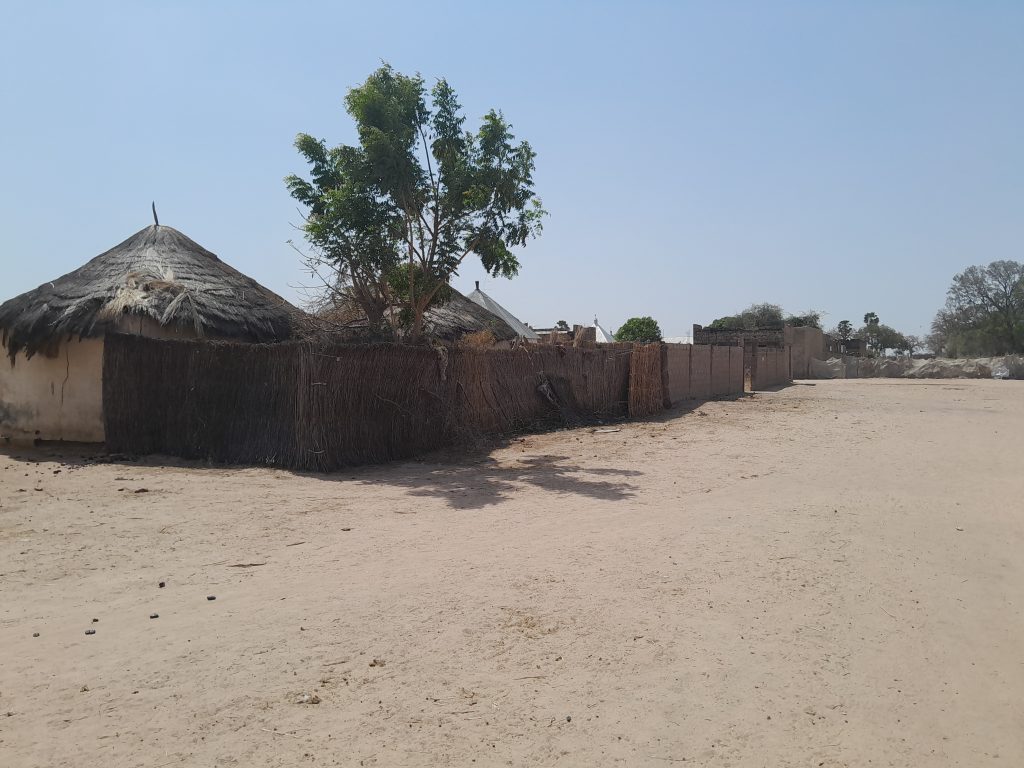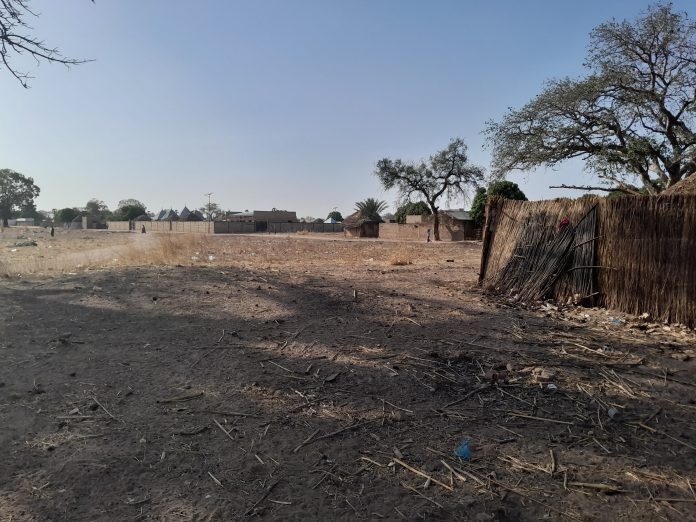By Yankuba Jallow
Fifteen years ago, in 2009, the village of Kerr Mot Ali in The Gambia was a peaceful, thriving community, home to many families and followers of Sering Ndigal, a religious group known for its teachings of peace and spiritual healing. But that peace was shattered when the Gambian government launched a violent crackdown against the group, accusing them of defying government policies.
The attacks by the government forced hundreds to flee their homes and livelihoods and seek refuge in neighboring Senegal. Today, these families remain exiled, living in makeshift settlements scattered across rural Senegal. They say they are waiting for their homes to be returned and for justice which has been promised to them by the Gambian government and courts.
What was supposed to be a temporary displacement has now stretched into a prolonged struggle, with court rulings that have gone unfulfilled, and growing frustration.
Mam Jara Secka’s voice trembles with emotion as she recalls the day Gambian security forces stormed her home in 2009. Her husband, Sait Secka, was arrested, beaten, and left with permanent injuries.
“He cannot work now,” Mam Jara said in an interview here in this small village near the Senegalese border with The Gambia, named for the village they left behind. Her eyes well with tears. “He depends on the help of others.”
Jara says her family, along with many others, were forced to leave Kerr Mot Ali, their ancestral home, and cross into Senegal. The years in exile have been harsh, and their home in Kerr Mot Ali is now occupied by strangers. Despite a series of court rulings affirming their right to return, they have not been allowed to go back. “We are treated as stateless people,” Mam Jara said bitterly. “No government sees us. No one helps us.”
Her story is far from unique. Kumba Secka, another displaced resident, remembers her father, Assan Secka, who was the village head of Kerr Mot Ali. In 2009, he was arrested, tortured, and held in detention, only to die shortly after his release.
“We left everything behind,” Kumba said, her voice breaking, in an interview in her bare house in Kerr Mot Ali Senegal. “We came with nothing.”
Today, Kumba’s family home is occupied by a Senegalese man, Sering Fallou, who has started construction on the property.
Despite multiple complaints to authorities in both countries, nothing has been done to resolve the issue. People say they feel trapped. “Our children have no documents to prove their nationality,” Kumba added, frustration and helplessness evident in her words. “We are stateless people.”
Like Kumba, many of the displaced families find themselves trapped in a world without identity. They live in the settlement with no access to basic services, such as education, healthcare, or work opportunities.
Without access to farmland, many of the displaced families have had to adapt, turning to vocational training programs to acquire new skills. Some have learned tailoring, shoemaking, and other trades. Women in particular have been supported by organizations like Wave (Women’s Association for Victim Empowerment), which helps them gain skills to become financially independent. But the financial strain remains unbearable for many. The approaching rainy season adds to their anxiety, as most are dependent on returning to their farms to provide for their families.

Kerr Mot Ali Senegal, where many of the displaced now live, is a far cry from the village they once called home. The settlement is located just 8 kilometers from the Gambian border, yet it is cut off from the infrastructure and opportunities that they once had access to. With no school in the settlement, the few children who manage to attend school must travel long distances each day. For the adults, job prospects are few, and without access to farmland, they are struggling to rebuild their lives.

Despite the years of hardship, the Gambian government has repeatedly acknowledged the injustices faced by the displaced families. In 2017, the High Court ruled that the Ndigal followers had the right to return to their homes and reclaim their properties. The decision was further reinforced by the Truth, Reconciliation, and Reparations Commission (TRRC). Yet nearly seven years later, the promises of return and restitution remain unfulfilled.
The Peace Committee, designed to mediate negotiations between the displaced families and the current residents, was supposed to have been established in late 2023. Yet, as of now, it has not been set up, prolonging the uncertainty.
Ida Persson, Special Advisor to the Attorney General, said that the delay in implementing the court’s ruling stems from concerns about maintaining peace.
“If you forcefully enforce the judgment, you will be creating problems,” said Persson in an interview. She pointed out that evicting current occupants from the homes of the displaced families would be a sensitive issue that could exacerbate existing tensions in the area. “The government is prioritizing peace and social cohesion. We need to handle this carefully, as it is a sensitive matter.”
Musa Secka, the current village head of Kerr Mot Ali, said the followers of Ndigal should stay in Senegal. “If our wish is to be granted, let the Ndigal followers stay there, and we stay here,” he said. “We will have lasting peace.”
Secka’s concession offers the exiles hope that the situation might be resolved, but the future remains uncertain.
The resettlement process, which the government estimates will cost $1.5 million, has yet to be implemented. The financial burden, combined with the lack of infrastructure in the village and the deep emotional scars left by years of exile, makes it difficult for many families to imagine a future in Kerr Mot Ali again.
This story was a collaboration with New Narratives as part of the West Africa Justice Reporting Project.


















